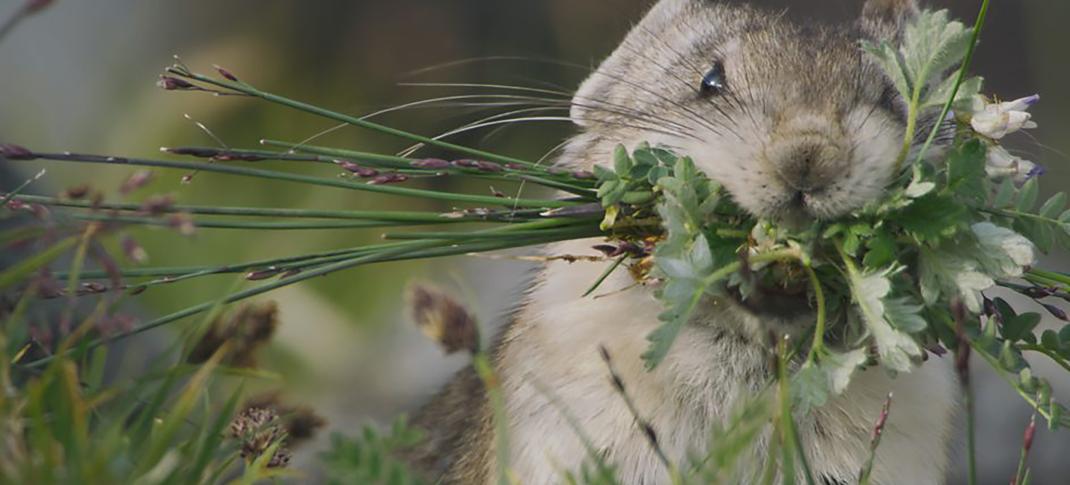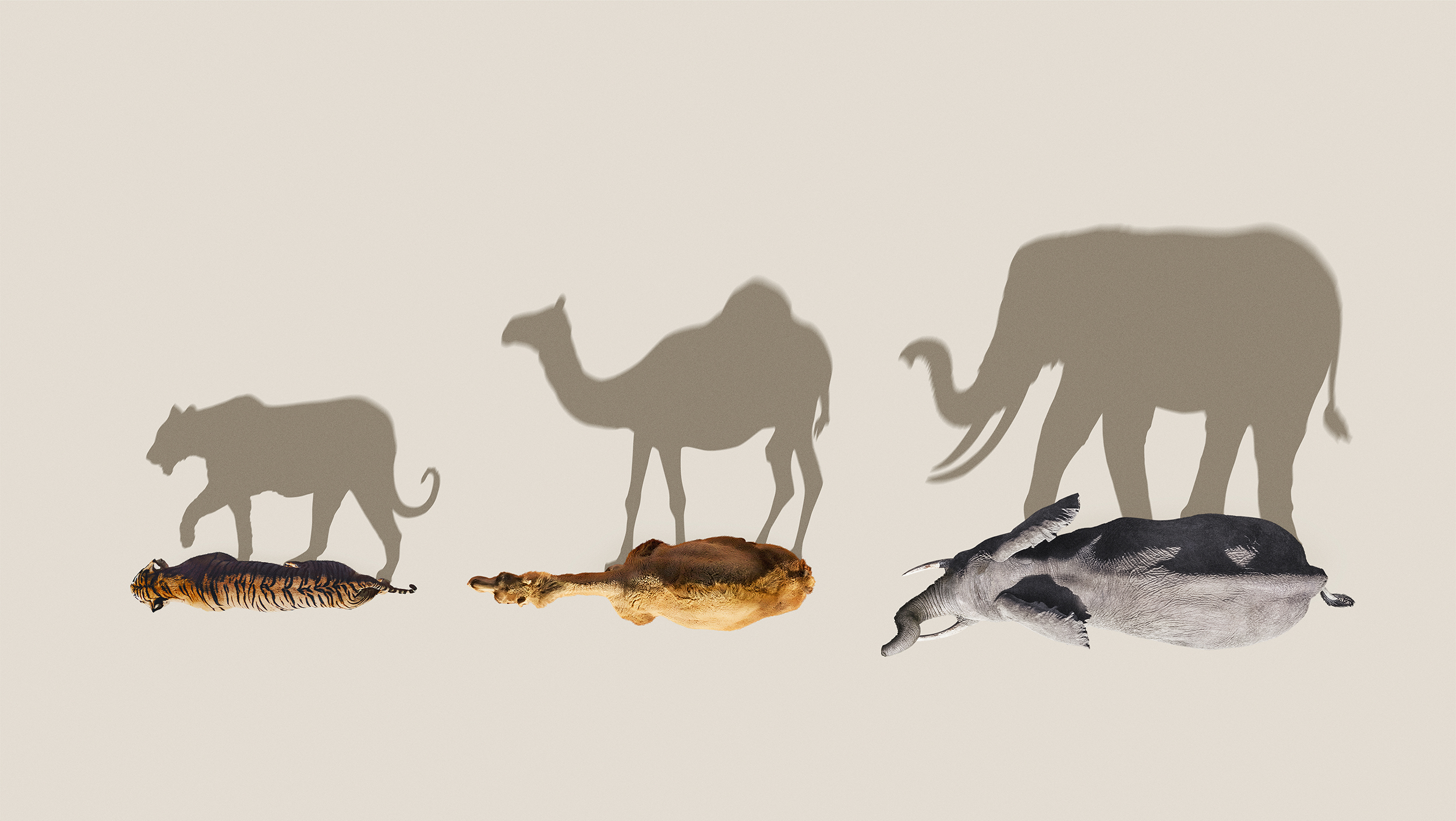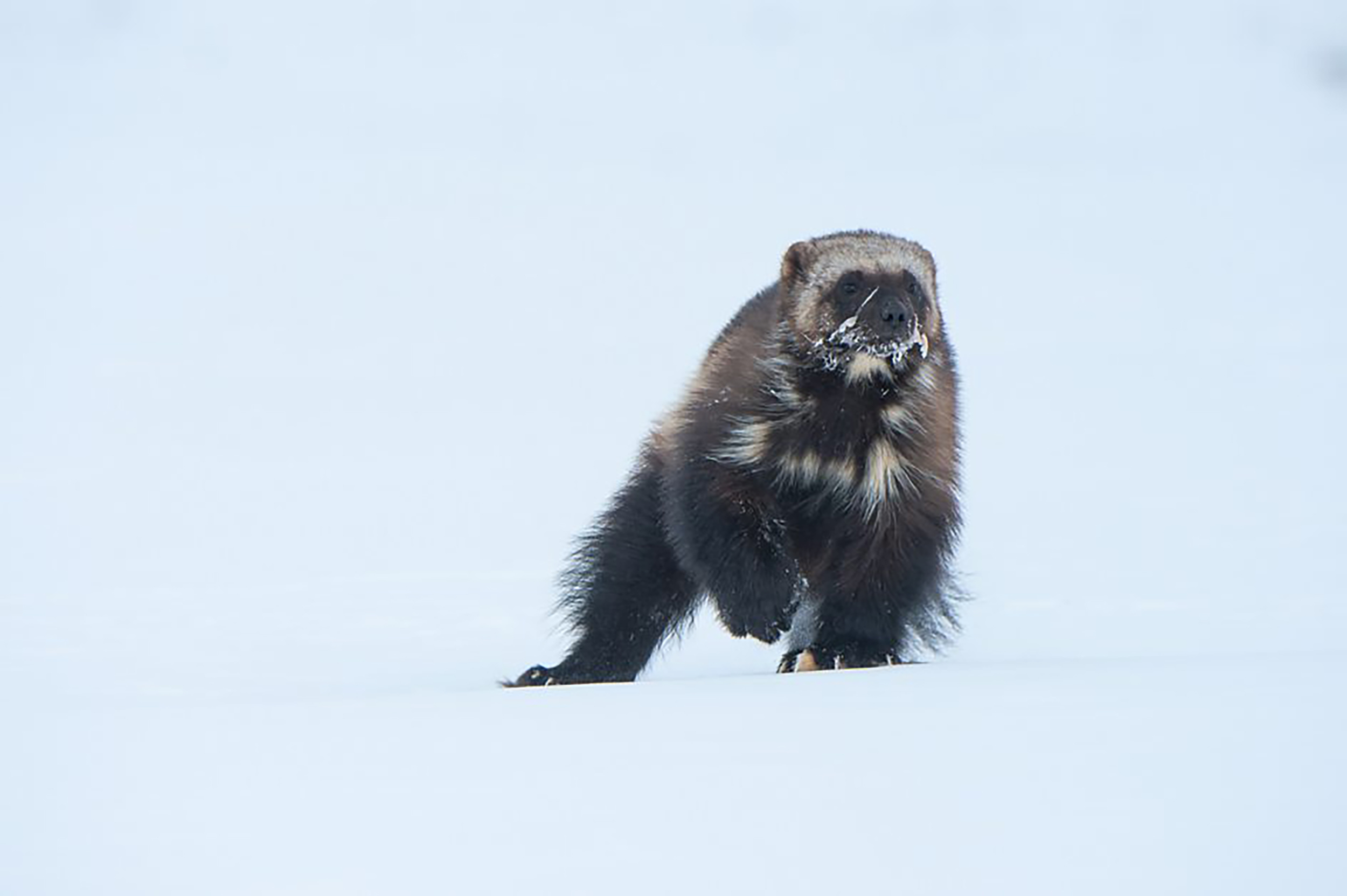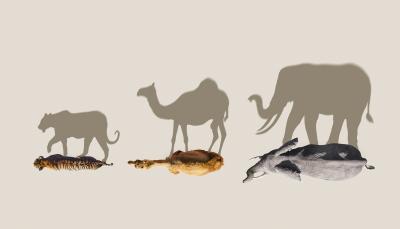BBC America Sets Premiere Date for David Attenborough's 'Mammals'

Collared pika gathering food, Kluane National Park, Canada in 'Mammals'
BBC Studios
Considering that Sir David Attenborough's filmography extends back 72 years, starting in 1952, and 2024 marks his 70th year presenting since his first TV appearance in 1954's Zoo Quest on the BBC, the decision to look back on a series he made a mere 20 years ago for his new show Mammals, seems relatively recent. But a lot has happened in the 22 years since the original Life of Mammals debuted in 2002 and now, climate change-wise. Attenborough's choice to pick something recent to contrast and compare (as opposed to something from the 1950s or 1960s) seems deliberately timed as if to warn us that change is happening fast now, and there's no more time left.
And who can blame him? Attenborough has dedicated his life to the study of the natural world. He's spent eight decades bringing it to viewers back home, sitting in their living rooms, teaching us about the world via television for almost as long as TV has existed as a medium. While his work has brought him titles and accolades and more than a few animals bearing his name, it's also given him a front-row seat to how the way humans interact with the natural world from the 1940s and 50s, when no one thought twice about keeping a pet orangutan, to today, as climate change wreaks havoc upon the planet almost daily. Moreover, he has decades upon decades of footage to prove it.
In the more recent installments of the Planet Earth series, Attenborough tried to put the footage of his original series (taken in the early aughts) next to the new footage (taken in the 2020s) to show how much has changed in such a short period in his final "Making of" episodes, only to see the BBC quietly bury them. Mammals will allow no such hiding from inconvenient facts, exploring just how far our order has dominated the planet... and just how quickly climate change is killing them off.
Here's the synopsis:
66 million years ago, when the reign of the dinosaurs came to an end, mammals were set free to exploit every corner of the planet. Mammals reveal the strategies, behaviors, and traits that lie behind the astonishing success of this remarkable group of animals. Above all, the series celebrates the amazing intelligence that enables mammals to learn, remember, problem-solve, parent, and cooperate.
In six episodes, Mammals will show how mammals have taken advantage of every major environment on Earth. They are found in every ocean and on every continent, from frozen wildernesses to dense jungles to baking deserts, even the dark depths of the open ocean and the skies above our forests.
Here are the episode titles and descriptions:
- Dark: Originally confined to the night during the dinosaur era, many mammals have, with heightened senses verging on superpowers, become masters of the shadows. Today, some are even returning to the dark side as their daytime world gets more and more crowded.
- The New Wild: It is two decades since Sir David looked at the “Life of Mammals.” In that time, the issues facing mammals have grown and grown – today, less than 6% of the world’s mammal biomass is made up of wild mammals, and many face extinction. As well as bringing a fresh understanding of this remarkable group of animals we highlight many of the problems faced by mammals in a rapidly changing world. To do this, we explore how mammals are coping with living alongside perhaps the most successful mammal of all – us, revealing both winners and losers in today’s new wild.
- Water: Very few mammals have managed to lose all ties with land and conquer life in water, one of the greatest challenges for an air-breathing mammal. Those that have are some of the cleverest of all, forming surprising bonds not just amongst their own but also with other species.
- Cold: Thanks to their great ingenuity, combined with a thick fur coat, mammals can survive where no others can, in the cold of the planet’s extreme frozen worlds. Here, we see a polar bear learn remarkable new hunting skills and witness the rarely-seen caring side of the not-so-mythical wolverine.
- Heat: With fur designed to keep you warm, keeping cool is never going to be easy, yet mammals are found in the hottest, driest places on earth, such as Australia’s barren outback, where they have found remarkable ways to stay cool, find water, and beat the heat.
- Forest: From down in the undergrowth to high above the treetops, we see how mammals have conquered every level of the forest with perfect camouflage, secret messages, and even the power of flight, but now many face new challenges as they are forced to adapt to a changing world.
As always, the series will be narrated by Sir David Attenborough, who wrote the scripts for all six episodes. Roger Webb is the executive producer, and Scott Alexander is the Series Producer. Stuart Armstrong (Dark), Lydia Baines (The New World), Daniel Rasmussen (Water), William Lawson (Cold), Rob Pillay (Heat), and Justine Allan (Forest) each produce an episode apiece for the series.
Mammals will premiere on BBC America and AMC+ on Saturday, July 13, at 9 p.m. ET. The two networks will air and stream one episode a week in tandem through August.





